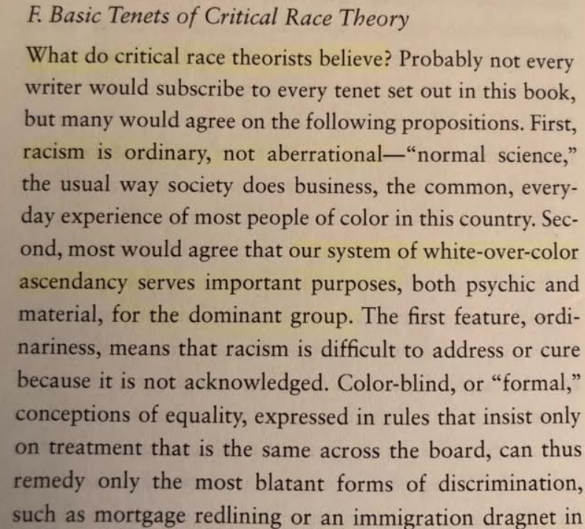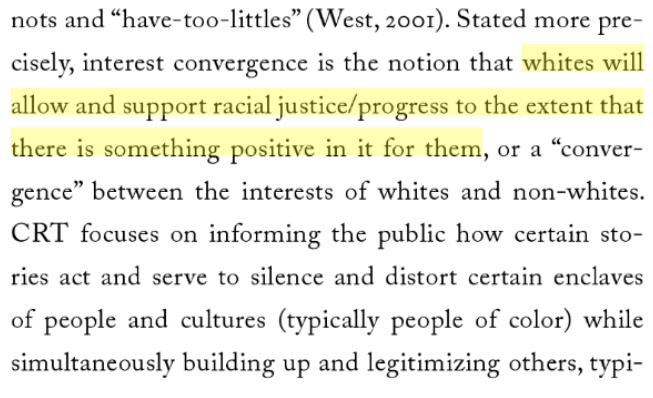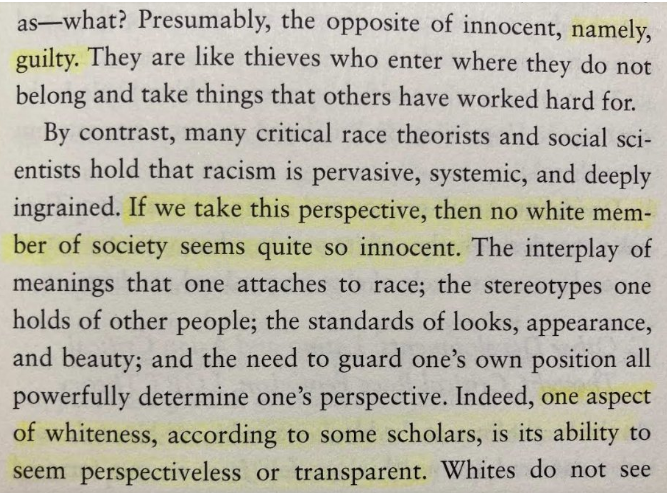
A few days ago, @DennyBurk posted this picture of an @MSNBC legal analyst with the book #CriticalRaceTheory: The Key Writings in the background.
Given the pushback, I thought I'd show how CRT can help us understand progressive commentary on the #Rittenhouse verdict. A thread: 1/
Given the pushback, I thought I'd show how CRT can help us understand progressive commentary on the #Rittenhouse verdict. A thread: 1/

CRT asserts that racism is "ordinary, not aberrational." It is the "usual way society does business" (Delgado and Stefancic, CRT: An Introduction, p. 8). 

This is especially true in our legal system, where ideas like "liberalism, neutrality, objectivity, colorblindness, and meritocracy… camouflage [how] racial advantage propels the self-interests, power, and privileges of the dominant group" (Harper et al., JHE, 2009) 

Even instances of racial progress/justice can be explained away as "interest convergence," the notion that "whites will allow and support racial justice/progress to the extent that there is something positive in it for them" (Hartlep, Going Public, p. 157) 4/ 

Finally, while traditional legal scholars might ground law in some "universal system of right and wrong", CRTs insist that "political and moral analysis is situational—‘truths only exist for this person in this predicament at this time in history’” (Matsuda et al., p. 20-21) 5/ 



On this view, Rittenhouse's exoneration was further evidence of a racist legal system constructed for the benefit of whites. Appeals to "due process" and "the right to self-defense" are mere excuses to preserve a systemically racist legal system. 6/ 

Appeals to recent cases where black defendants were exonerated under the same legal principles as Rittenhouse can be seen as mere instances of "interest convergence," where Blacks happen to benefit from laws that still serve White interests. 7/
sports.yahoo.com/jury-acquits-g…
sports.yahoo.com/jury-acquits-g…
In conclusion, if we want to understand our current cultural moment and progressive reactions to the #Rittenhouse verdict, it helps to understand #CriticalRaceTheory. You can read more here from CRTs in their own words with no commentary. 8/8
shenviapologetics.com/what-is-critic…
shenviapologetics.com/what-is-critic…
• • •
Missing some Tweet in this thread? You can try to
force a refresh







